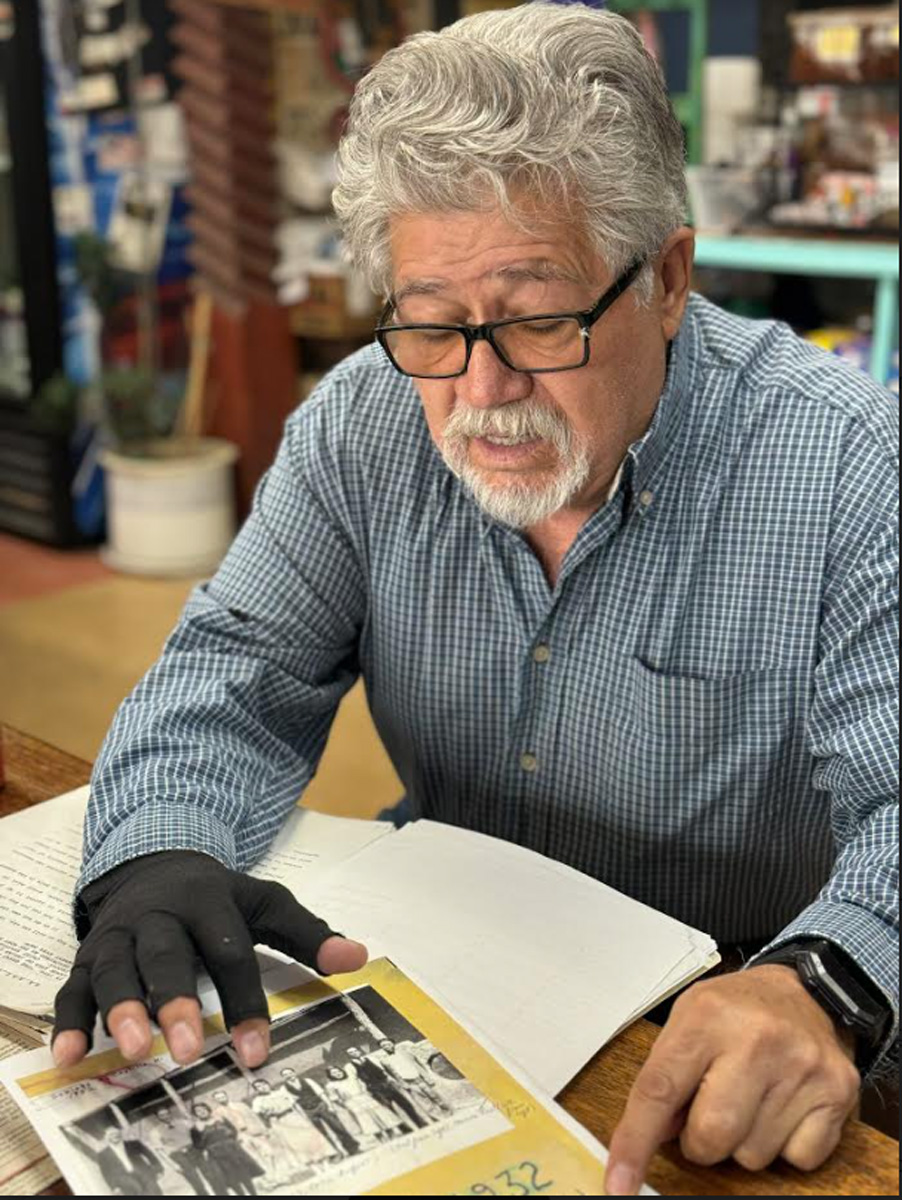Many homes in Questa serve as storage spaces for our loved ones who have gone before us… grandparents, great-grandparents, tios and tias whose homes and belongings remain untouched for years at a time for fear of erasing the last things they left behind.
Michael Rael, Sr. recently started sifting through many of the belongings of his father, Malaquias Rael, Sr., who passed away in 2004. Twenty years after his death, Michael is uncovering the unique history of not only his family, but many families who came and settled in Questa.
“There is nothing like knowing and learning about your past. Knowing your history is what helps shape your future,” Michael says. In the articles and pieces of history he shared with Questa del Rio News, it’s clear his parents valued and carefully stored articles and items of significance to the northern Taos County area.
Michael recently discovered through a DNA test that while he is approximately 50 percent Hispanic, he has roughly 30 percent Native American DNA. “If it wasn’t for the DNA test, I wouldn’t have ever really recognized or realized that I have native blood—these things are important for us to acknowledge and recognize,” he says.
When speaking to many of the documents now in his possession, he talks of his memories of Matanzas that his grandfather Solomon held once a year. “I remember when we would kill an animal, we would use every part of the animal, including the blood and the brain. Frying blood and eating it, that is a Native American practice, and we didn’t realize how much our cultures take and give from each other.”
Recognizing the historical disenfranchisement of the area, Michael says this is part of what makes northern New Mexico so special. “In this area, we have a big mix of Spaniard and Native American cultures who settled the area. We are our own people, unique to the land and maintaining our culture, history, traditions—and keeping them alive is the only way we will maintain our identity.”
One of the articles Michael shared with our publication is a published paper book entitled “El Centenario.” It’s focused on Questa local Felix Sanchez’s life between 1988-1999. It was published in the year 2000. The 21-page book is written in English and Spanish, detailing memories throughout Felix’s life ranging back from the 1900s and what led to his family’s settling and expansion in the Questa area.
One excerpt from the book is entitled “A Little History.” It reads: “The Questa Concilio 44 was a group founded in Questa in 1936. The first list of members from Nov. 26, 1936, to May 26, 1937, and includes such community leaders as Marcelino E. Martinez, Moises Rael, J.E. Rael, J.P. Rael, J. Antonio Rael, Esequiel Rael, Agapito Vigil, Luis R. Montoya, and others. The first ‘Presidente’ was Antonio J. Trujillo who was the postmaster at Questa for many years. The other officer was the ‘Secretario’ Libby L. Herrera. The first minutes (recorded in Spanish) were of a meeting on July 7, 1937, and the first mention was of monies in the amount of $315.65 which was gathered by dues paid by its members to help the sick and those who fell into hard times.”
The book goes on to say that over the years, the organization changed dramatically, but existed to help community members in the area. In 2000, the organization worked with Questa High School to award a senior with a scholarship so that that student could pursue an education. The book says, “in order to get the scholarship, the Hispanic parents had to take the initiative to stress the importance of education for their children but also, to pass on their culture to their children to maintain the community.” Felix Sanchez was a member up until the time he passed away in the early 2000s.
The history uncovered in Michael’s father’s storage is just part of the story of northern New Mexico. It gives a glimpse into the past and the beliefs, traditions, and practices of our ancestors—why they lived the ways they did, how their choices were made, and how their work led us to where we are today.
“We are a rich people not because of our belongings, but because of what we were left: that is our culture and our history and our people,” Michael says.



